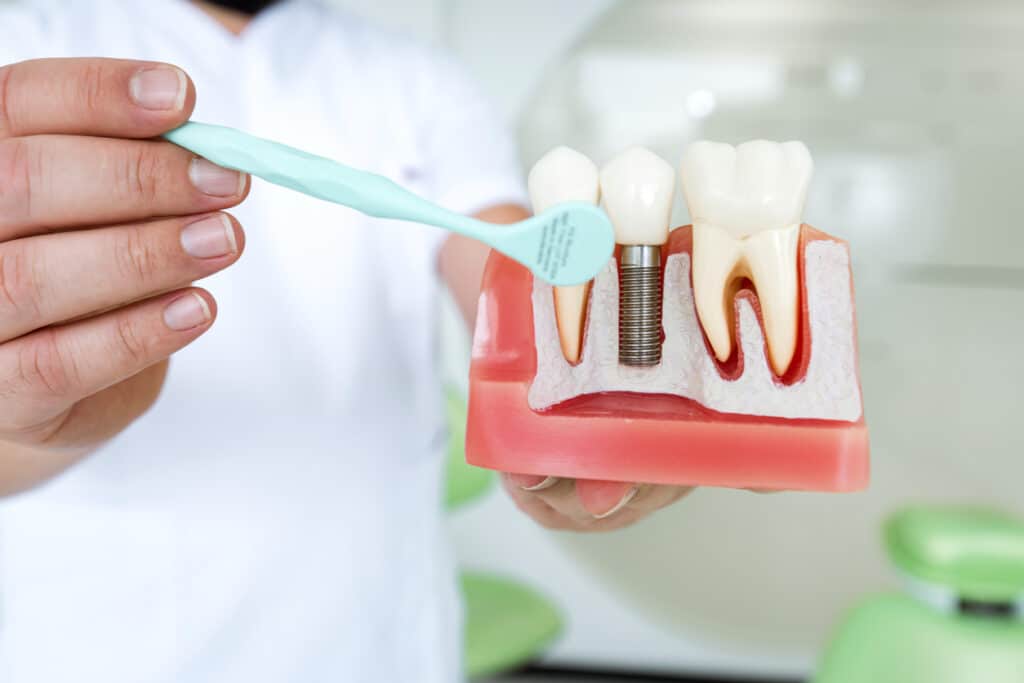Whats are Mini Implants?
A mini implant, also known as small diameter implant (SDI), can be used as a long-term anchor for a crown when space is limited or can be used to secure a lower denture.
Benefits Of Mini Implants

- Implantation procedure is much less invasive
- Less expensive than standard-size dental implants in some cases.
- Provide a good implant option for senior citizens
Many patients use mini implants to replace small teeth and incisors, or teeth in narrow areas of the mouth. Mini implants work best as anchors for lower dentures, and are about half the price of regular implants.
How is the Mini Implant Procedure performed?
Mini implants are titanium cylinders that act as a tooth root for a crown, or to secure a lower denture. Regular implants require three to six months of osseointegration, the process in which the implant fuses with the bone. However, mini implants can be placed directly into the underlying bone, in one sitting, in a simple procedure that takes less than two hours. The procedure is performed under local anesthesia or light sedation to reduce any discomfort.
Most patients experience immediate results from mini implants and can often eat within a few hours. In many cases, there are no sutures used in this procedure.
Patient Testimonial
"Went to Dr. Fong for a consult, he was so thorough, and explain every little details making sure I understand everything that was explained to me, he answered all my questions and concerns, and the consult was supposed to be 1 hour but he spent more than 1 hour with me and never rush to be finished. So happy to found a dentist that truly care for his patients, will definitely refer him to others. Can't wait to see Dr. Fong again in the future for all my dental care."
Risks And Complications Of Mini Implants
Mini implants are considered safer than traditional implants because of the shorter procedure time and the elimination of the osseointegration process. Infection, bleeding, gum damage and other problems are considered rare.
